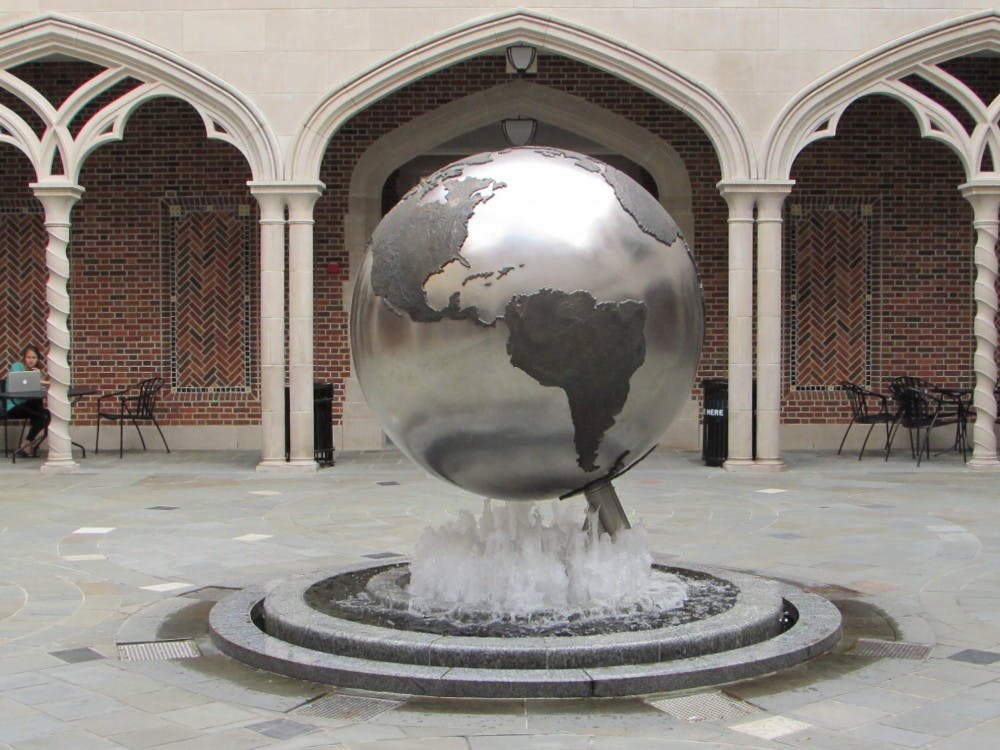Despite the escalating water crisis in the South African capital of Cape Town, the University of Richmond’s Office of International Education plans to send students there for internship opportunities this summer and for semesters abroad in the fall.
Cape Town, located on South Africa’s southwest coast, has been struggling with a severe lack of water for months now. Cape Town is home to four million people and the city’s officials are urging residents to limit their showers to 90 seconds. Locals are living off only 50 liters – which is roughly 13 gallons – of water each day, according to CNN.
Citizens have consistently been warned about the approach of “Day Zero” -- when the city’s taps are expected to be switched off. Day Zero was recently pushed back from April to July, but the most recent information indicates that it has been deferred to 2019.
Staff members at the Office of International Education offer suggestions and information to students based on any specific challenges they may encounter.
“As with all of our study abroad program locations, we are routinely monitoring the situation on the ground through various sources,” Ellen M. Sayles, associate dean and director of education abroad said in an email. “We let students know about the conditions in the country through individual advising prior to the application process, in pre-departure orientations given on campus and through information that we distribute to students, including a country/program handbook.”
Students who choose to study in Cape Town attend the University of Cape Town through the Council on International Education Exchange, the organization UR partners with. Occasionally, students are also sent to a program run through the School for International Training.
“We have confidence in our CIEE colleagues and their ability to notify students and partner institutions should any de-stabilizing or unsafe situation arise in Cape Town,” Sayles said. “CIEE works with students before and during their stay to help them understand how to manage conditions in country — such as the current water situation. The measures they need to take so far are manageable and respectful of the city’s needs.”
Sophia Tailor, a junior who studied abroad in Cape Town last fall, applied to the program because she has family in South Africa and her father is from Zambia, she said.
While abroad, Tailor lived in a shared apartment — one of the three housing options available to UR students. The CIEE program also features residence halls and homestays as alternatives.
Although the city’s drought has been increasingly exacerbating, UR students who studied in Cape Town last fall said they had felt somewhat sheltered from the issue during their time there. As an environmental studies major, Tailor describes being very aware of the water crisis, but said even she would forget about it if she was in her apartment because she was not accustomed to being conscious about her water use.
“I think it was really hard to regulate around a hundred American students in one place because that’s not something that we ever have to think about,” Tailor said. “We’re not worried about our water running out. We never have been. Unless you’re from places that are specifically affected by it, you’ve never really had to think about it.”
Allison Abdallah, another junior who spent last fall in Cape Town, said it was not until she had branched out and had made friends outside of her program that she had realized the severity of the problem.
“For us, water would never run out because we were paying for it,” Abdallah said. “When we had seen how our friends were so conscious in every single aspect of their lives, about their water consumption, it was kind of disturbing and it definitely made us feel really guilty and just not great about how we had all this water at our disposal.”
In mid-June, Abdallah will return to Cape Town for a summer internship that she found through the Institute of Education Sciences, another program UR partners with. For her, being in Cape Town is the most important aspect, regardless of what the conditions are, she said.
Abdallah has accepted the possibility of not having running water and of living off government ration stations while she is there this summer, she said.
Four UR undergraduates are committed to study in South Africa for the fall of 2018.
Sayles acknowledges that over the years, Cape Town has had several issues that have caused the Office of International Education to impose particular advising measures for students.
“Incidents have included student protests and strikes at UCT, and now the current water situation,” Sayles stated. “There are no advisories restricting travel to Cape Town and we don’t currently see any need to eliminate this program or move to a different program unless the conditions in Cape Town change dramatically or our students’ educational experiences are impacted.”
Contact lifestyle editor Jasmine Fernandez at jasmine.fernandez@richmond.edu.

